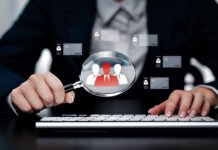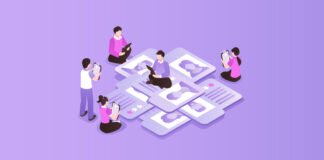Introduction
1. HR Professional’s Role in the Future Workplace
2. The Plan of Action to Initiate a Future Workplace
3. HR Practices to Strategize a Future-ready Workforce
Winding Up
Introduction
We have joined an era of rapid technological advancements that can evolve the business world and, most crucially, the role of human resources (HR) professionals. HR professionals will no longer be mere administrators but will be architects who will design and create a future-ready workplace for its employees that will navigate the traditional challenges and embrace new opportunities.
With this mindset, the chief human resources officer (CHRO) also needs to constantly reexamine workforce planning and learn and unlearn skills, especially when introducing artificial intelligence (AI) and machine learning (ML).
Organizations around the world are leveraging AI capabilities to develop and retain talents and reshape and optimize the internal capabilities of the workforce, amid the ever-evolving challenges of business disruptions and global conflict.
In this exclusive HRTech Cube article, we will explore the dynamic journey that HR professionals need to embark on to develop a future-ready workplace and take the necessary actionable steps to lead a successful route.
1. HR Professional’s Role in the Future Workplace
The future workplace will be known for its progressive HR practices, as the role of HR will be divided into numerous categories, such as culture cultivator, advocate for innovation, and strategic ally for steering the business successfully. Organizations must prioritize creating a culture of “freedom and responsibility in every employee,” and HR professionals are the right instrument to reshape the essence of an organizational culture that encourages constant learning, diversity, and teamwork. Hence, by fostering this kind of environment, employees will feel valued and empowered, and HR can ensure that every employee’s skills are harnessed for ultimate productivity.
2. The Plan of Action to Initiate a Future Workplace
To achieve this kind of empowered environment in the future workplace, HR professionals must initiate some proactive measures that emphasize lifelong learning. For instance, initiating quarterly workshops, webinars, and online courses that will empower employees to enhance their soft and technical skills will keep them relevant in the fast-paced digital landscape.
CHRO can also promote cross-functional collaboration with other C-suites and manager-level employees to share knowledge and ideas across departments, initiate innovation, and enrich the cooperative pool of expertise.
The CHROs must also come up with regular feedback sessions for top managers by conducting pulse surveys or focus groups for employees, as this will help the HR professionals get detailed insights into employee sentiment, further identify areas for improvement, and strategize accordingly.
3. HR Practices to Strategize a Future-ready Workforce
HR professionals’ journey towards future readiness needs a steady commitment to adaptability and innovation in this digital era; therefore, professionals are required to anticipate future trends, embrace technological advancements, and adopt HR practices that align with organizational goals.
Embracing technologies such as AI, ML, and IoT is the foundation for elevating organizations to future-ready workplaces as these HR tools can streamline the recruitment process by identifying a suitable candidate based on their skill set. For instance, data analytics can predict workforce trends, enabling HR to make informed decisions to develop robust workforce planning and talent acquisition.
Winding Up
In summary, CHRO and HR professionals should gear up for a future where the workplace is increasingly digital, diverse, and focused on employee well-being and professional and personal development. By embracing these technological changes, HRs can nurture a diverse and inclusive culture, and staying agile in response to modifying workforce dynamics will be key to conquest in the evolving world of work.
Explore HRtech News for the latest Tech Trends in Human Resources Technology.












